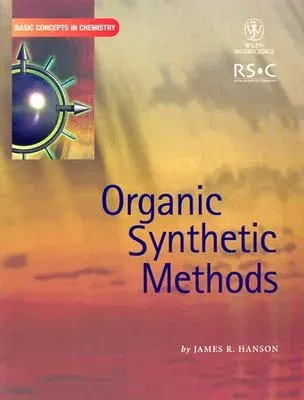James R Hanson
(Author)Organic Synthetic MethodsPaperback, 5 December 2003

Qty
1
Turbo
Ships in 2 - 3 days
In Stock
Free Delivery
Cash on Delivery
15 Days
Free Returns
Secure Checkout

Part of Series
Basic Concepts in Chemistry
Print Length
176 pages
Language
English
Publisher
Wiley-Rsc
Date Published
5 Dec 2003
ISBN-10
047154910X
ISBN-13
9780471549109
Description
Product Details
Author:
Book Format:
Paperback
Country of Origin:
US
Date Published:
5 December 2003
Dimensions:
24.69 x
19.1 x
0.91 cm
ISBN-10:
047154910X
ISBN-13:
9780471549109
Language:
English
Location:
New York, NY
Pages:
176
Publisher:
Series:
Weight:
403.7 gm